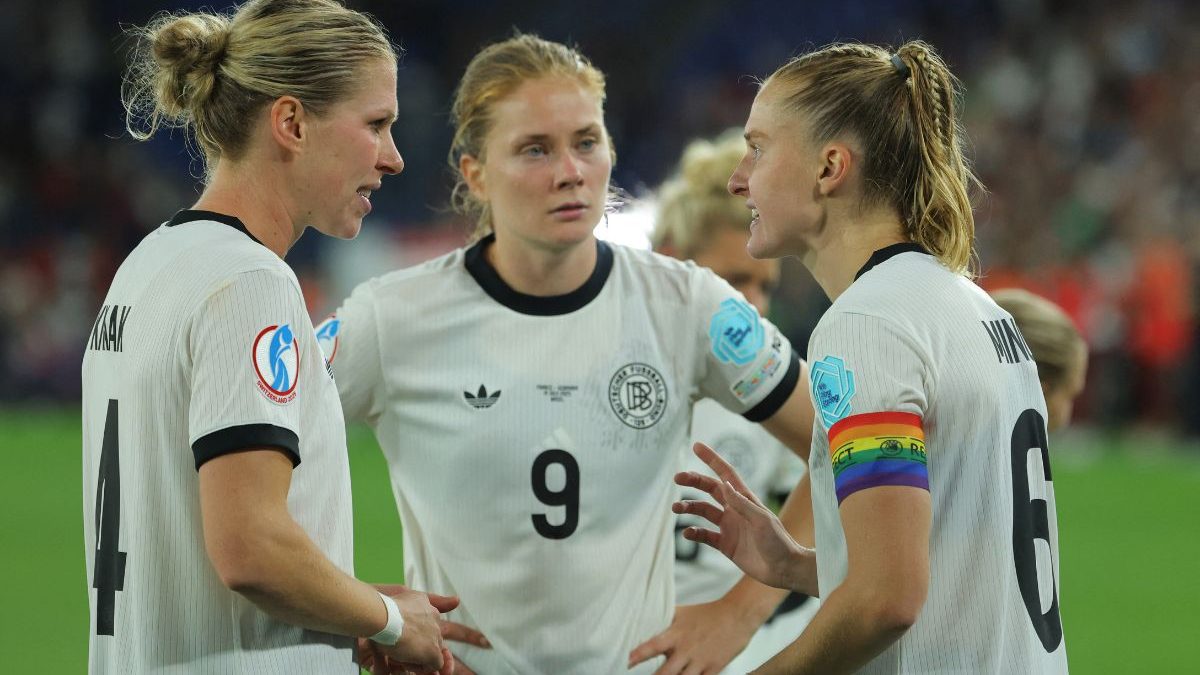The rainbow armband, which is meant to show support for LGBTQ+ rights and diversity, is creating mixed reactions at the ongoing Women’s Euro 2025 in Switzerland. It is dividing opinions among players and fans despite being a symbol of inclusion.
Some captains like Switzerland’s Lia Walti, Norway’s Ada Hegerberg, England’s Leah Williamson, and Wales’ Angharad James have proudly worn the rainbow armband. Even England defender Lucy Bronze added a rainbow wristband during their quarterfinal win against Sweden.
Also Read: Canada’s Olivia Smith smashes all-time transfer record in women’s football after joining Arsenal
Why is rainbow armband dividing opinions?
But not everyone is wearing it. Spain’s Irene Paredes chose not to wear the colourful band, and France’s captain Griedge Mbock Bathy wore a plain armband with the word “Respect” instead. UEFA has given teams a choice between the rainbow armband and the “Respect” version.
France explained their decision, saying the rainbow armband focuses too much on just one issue, whereas the Respect band is of wider range. “Highlighting a single issue also potentially excludes the others. We cannot champion a single cause through our diverse group because there are so many causes to defend,” Mbock said.
“Our team is so diverse that we cannot highlight just one cause. I think that the armband with the word ‘respect’ really represents what we want to convey as a message and that is the most important thing,” she added.
Out of 16 teams in the tournament, nine have worn the rainbow armband. “Standard yellow and blue armbands are provided to all teams and rainbow armbands are available upon request,” UEFA told Associated Press. This means that the teams who chose to wear the rainbow armband made an intentional decision.
Also Read: Lionel Messi overtakes GOAT rival Cristiano Ronaldo to secure enormous goal-scoring milestone
This debate is not new. A similar controversy happened during the 2022 World Cup in Qatar, where FIFA banned the rainbow “One Love” armband. German players famously covered their mouths in the team photo after their first match to protest the ban, saying they were being silenced. FIFA banned the armband because same sex relationships are not legal in Qatar.
Qatari fans later responded with their own protest by holding pictures of Mesut Ozil, referencing racism he faced in Germany. Germany was a big supporter of rainbow armbands but later some voices, like coach Julian Nagelsmann, asked for fewer political statements in football because they distract from the game.
)